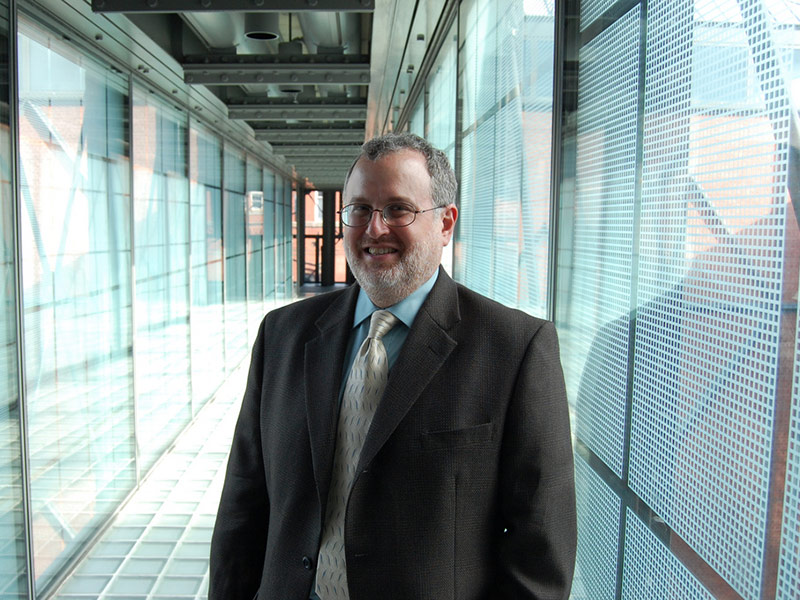This article was originally written by the Ottawa Jewish Bulletin and re-posted on the Centre for Holocaust Education and Scholarship (CHES) website in November of 2018:
https://carleton.ca/ches/2018/ehrenreich-helps-artifacts-speak-for-holocaust-victims-ottawa-community-asked-to-submit-artifacts-for-pop-up-museum/

Robert M. Ehrenreich, director of the National Academic Programs of the United States Holocaust Memorial Museum, will speak at a Holocaust Education Month event, November 5, 2018 at Temple Israel. (U.S. Holocaust Memorial Museum)
“How can an exhibition return the humanity to all the people murdered in the chaos of war when the numbers are literally incomprehensible?” asks Robert M. Ehrenreich and co-author Jane Klinger in an article titled “War in Context: Let the Artifacts Speak.” This is an issue that the Centre for Holocaust Education and Scholarship (CHES) and similar organizations confront when trying to convey the impact of genocide on lives past, present and future.
Ehrenreich, director of the National Academic Programs of the United States Holocaust Memorial Museum, will explore these questions during Holocaust Education Month in Ottawa at an event organized by Temple Israel, the Zelikovitz Centre for Jewish Studies and CHES. He will speak on the topic of “Let the Artifacts Speak: Returning Humanity to Holocaust Victims” at Temple Israel on Monday, November 5, 7:30 pm.
“How can we show, as Holocaust survivor Abel Herzberg said so well, that ‘There were not six million Jews murdered; there was one murder, six million times?’” says Ehrenreich. “How do we convey that these were real people with real lives and families?”
In his presentation, Ehrenreich will discuss how personal items can turn the inconceivable numbers of victims back into individuals and return their humanity, based on three case-studies: personal items discovered near shooting pits in Ukraine; damaged photographs from Poland; and a piece of mica from the Theresienstadt Glimmerwerke (mica works).
In conjunction with the Ehrenreich talk, the public is invited to submit Holocaust-related artifacts to create a community-wide ‘Pop-Up’ (temporary) museum. This program will engage survivors, descendants of survivors, scholars, students and the community at large in creating this special exhibit. Items should be submitted electronically for evaluation by October 15 with a title and short description of the object’s relationship to the Holocaust.
“Properly conserving and displaying personal items [in context] can help visitors see events from the victim’s perspective and provide a glimpse of the struggle that these people were forced to endure,” wrote Ehrenreich and Klinger. “Such artifacts and stories allow visitors to appreciate the large number of victims or refugees as individuals as opposed to faceless numbers, as well as to contemplate how they would have reacted to such events.”
The Pop-Up Museum will be open at Temple Israel on Sunday, November 4, 12:30-4 pm, and again on Monday, November 5, 6:30-7:15 pm in advance of the Ehrenreich lecture. Afterwards, the objects and their stories will continue to be shared with the community through a virtual museum hosted on the Zelikovitz Centre website.
To learn more about the Pop-Up Museum or to share your family’s object through this project, visit carleton.ca/hempopup or call the Zelikovitz Centre at 613-520-2600, ext. 1320.
By: Toby Herscovitch (CHES)
Source: Ottawa Jewish Bulletin